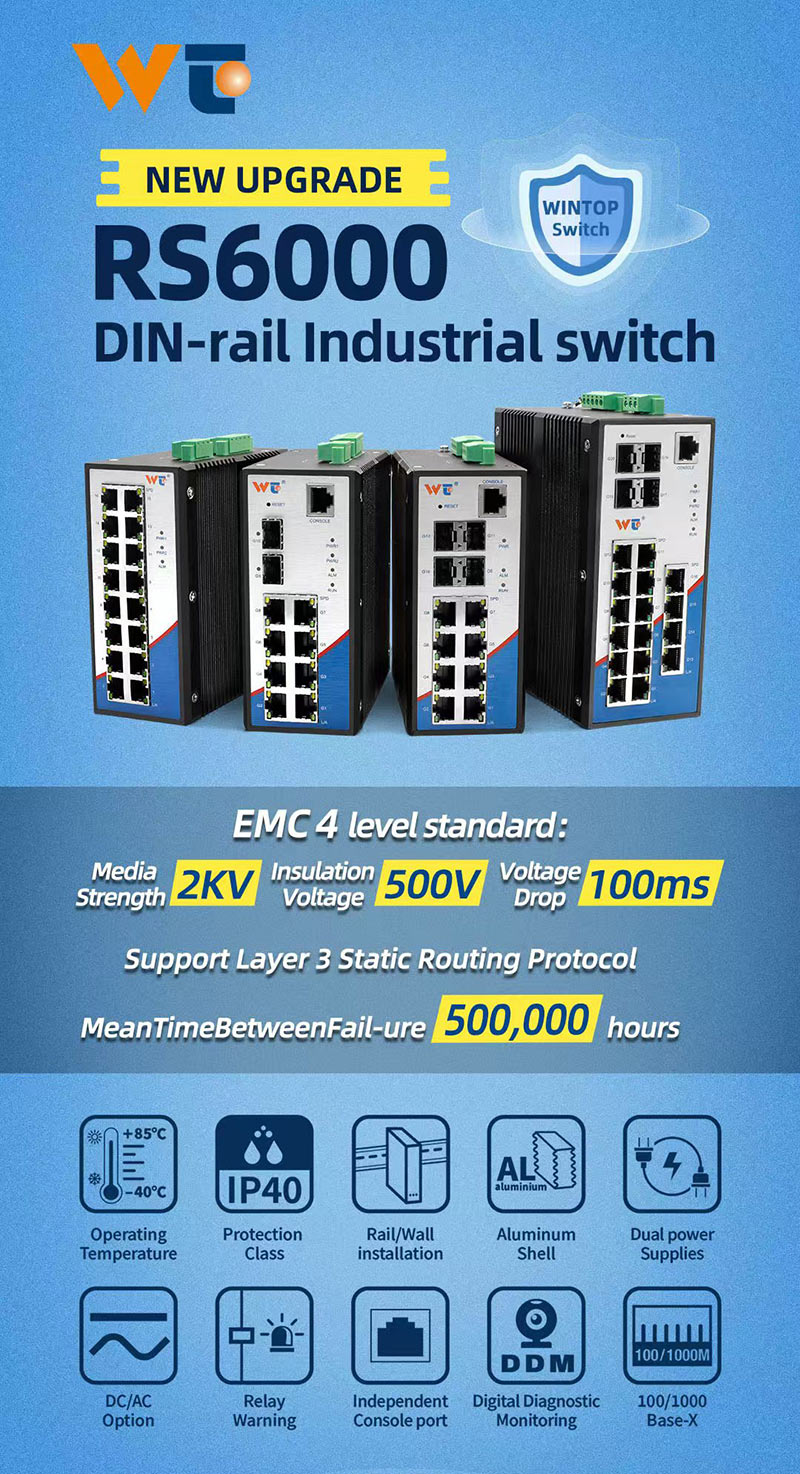Unveiling the Importance of Power Industry Switches in Modern Industrial Infrastructure
In the ever-evolving landscape of industrial automation, the term "Power industry switch" has become synonymous with reliability, efficiency, and robustness. These industrial switches are pivotal components in ensuring seamless operations across various sectors, with a pronounced emphasis on the power industry. This article delves into the intricacies of power industry switches, elucidating their functionality, applications, and the critical role they play in modern industrial infrastructure.
Understanding Power Industry Switches
A power industry switch, often referred to as an industrial switch, is a sophisticated device designed to manage the flow of electrical power within an industrial network. These switches are engineered to withstand harsh environmental conditions, including extreme temperatures, vibrations, and electromagnetic interference. Unlike conventional switches used in residential or commercial settings, power industry switches are built for high performance and longevity, catering to the demanding needs of industrial applications.
Key Features and Specifications
- Rugged Design: Power industry switches boast a rugged design, often encapsulated in robust, corrosion-resistant enclosures. This design ensures durability and reliability, even in the most challenging environments.
- High Bandwidth and Speed: These switches support high bandwidth and speed, facilitating rapid data transfer and communication between industrial devices. This capability is crucial for real-time monitoring and control in industrial operations.
- Redundancy and Reliability: Redundancy features such as dual power supplies and failover mechanisms are integral to power industry switches. These features guarantee continuous operation, minimizing downtime and ensuring uninterrupted service.
- Advanced Security: With the increasing threat of cyber-attacks on industrial systems, power industry switches are equipped with advanced security protocols. Features like VLANs, access control lists (ACLs), and encryption ensure the protection of critical infrastructure from unauthorized access and cyber threats.
Applications in the Power Industry
The power industry relies heavily on industrial switches for a myriad of applications, ranging from power generation and distribution to grid management and renewable energy integration.
- Power Generation: In power plants, industrial switches enable the integration and management of various subsystems, including turbines, generators, and control systems. They ensure seamless communication and coordination, enhancing operational efficiency and safety.
- Power Distribution: Industrial switches play a crucial role in the distribution of electrical power across vast geographical areas. They facilitate the monitoring and control of substations, ensuring optimal load distribution and minimizing power outages.
- Grid Management: Modern power grids are increasingly becoming smart grids, incorporating advanced technologies for real-time monitoring and control. Industrial switches are at the heart of these smart grids, enabling the integration of IoT devices, sensors, and automated control systems.
- Renewable Energy Integration: The integration of renewable energy sources such as solar and wind into the power grid presents unique challenges. Industrial switches help manage these intermittent energy sources, ensuring their efficient and reliable integration into the existing grid infrastructure.
Technological Advancements
The realm of power industry switches is witnessing rapid technological advancements, driven by the need for enhanced performance, security, and scalability. Innovations such as Software-Defined Networking (SDN) and Industrial Internet of Things (IIoT) are revolutionizing the capabilities of these switches.
- Software-Defined Networking (SDN): SDN decouples the control plane from the data plane, enabling centralized management and dynamic configuration of network resources. This flexibility is particularly beneficial in the power industry, where rapid adaptation to changing conditions is essential.
- Industrial Internet of Things (IIoT): The proliferation of IIoT devices is transforming industrial operations. Power industry switches now incorporate IIoT capabilities, facilitating seamless integration and communication between a myriad of connected devices, thereby enhancing operational visibility and efficiency.
Conclusion
In conclusion, power industry switches are indispensable components in the modern industrial landscape. Their robust design, high performance, and advanced features make them ideally suited for the rigorous demands of the power industry. As technological advancements continue to shape the future of industrial automation, the role of power industry switches will only become more pivotal, driving efficiency, reliability, and innovation across the sector. Whether in power generation, distribution, grid management, or renewable energy integration, these switches stand as the backbone of a resilient and intelligent industrial network.
